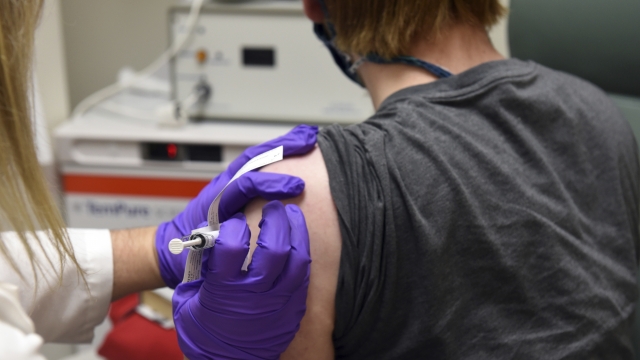The FDA has approved the Pfizer-BioNTech COVID-19 vaccine for emergency use, and we're very close to the first Americans getting their shots. You might be wondering how long until you could get it. Here's what we know so far.
Pfizer says it will have about 25 million doses of the vaccine for the U.S. by the end of the year. However, in early stages, the vaccine -- which requires two shots three weeks apart -- will mainly be reserved for health care workers and nursing home residents.
"Really, the way that we distribute this depends on the supply," Dr. Laura Morris, a family medicine physician at MU Health Care, said. "So if we have enough vaccine, as soon as we can get our hands on it, we're going to get it into the arms of our employees to help protect our patients, to help protect our workforce and to help protect our community."
Essential workers and adults over 65 will be next in line for the vaccine. As for everyone else, vaccines probably won't be available until around April to June.
The virus has killed nearly 300,000 Americans. During a CDC meeting Friday, Dr. Beth Bell, the chair of the CDC COVID-19 Vaccines Work Group, said two Americans are dying from COVID every minute. Public health experts are hoping a vaccine will bring the number of deaths down, but some Americans aren't ready to get it even when it's available to them.
"Vaccine hesitancy is real," Morris said. "It's in our communities, and it was there before the vaccine. But this vaccine and the amount of study and the amount of time and research that's been put into developing it should reassure us that those safety processes are in place.”
She says patients have told her they're worried the vaccine would get them sick with COVID. It can't.
"I hear a lot from patients that they don't want to get the flu shot because it makes them sick," Morris said. "And that isn't true. And the same with the [coronavirus] vaccine. It cannot infect you. So, there is nothing infectious in the vaccine. And the reactions and the things people experience after getting the vaccine are actually a sign that their immune system is reacting. That's actually a positive sign."
But just because you get the vaccine doesn't mean you won't have to wear a mask anymore.
"You still need to wear your mask," Brad Myers, the executive director of pharmacy and lab administration at MU Health Care, said. "You still need to wash your hands, still need to social distance."


